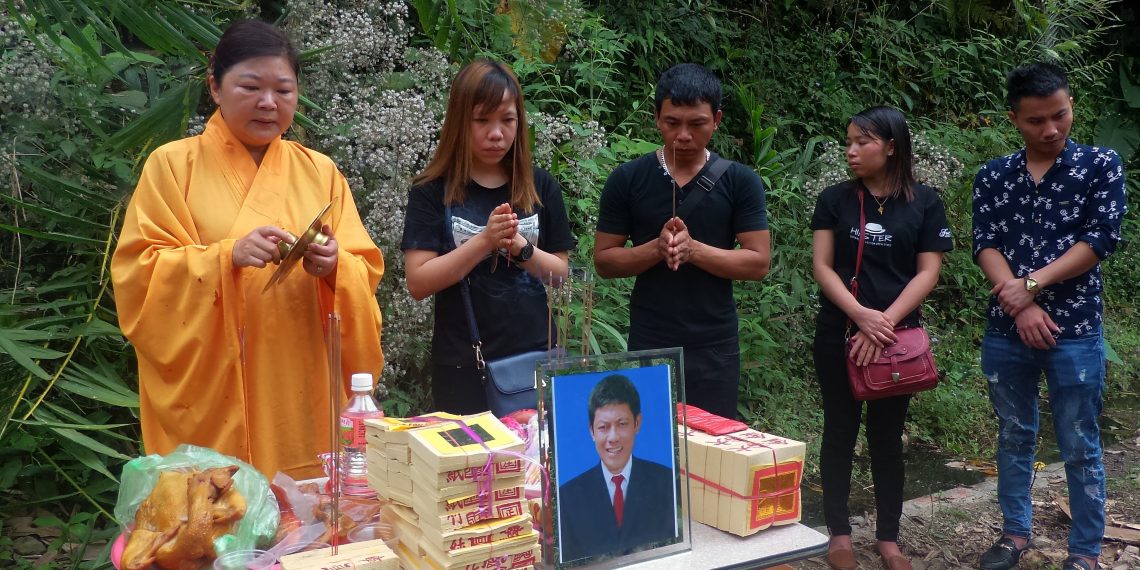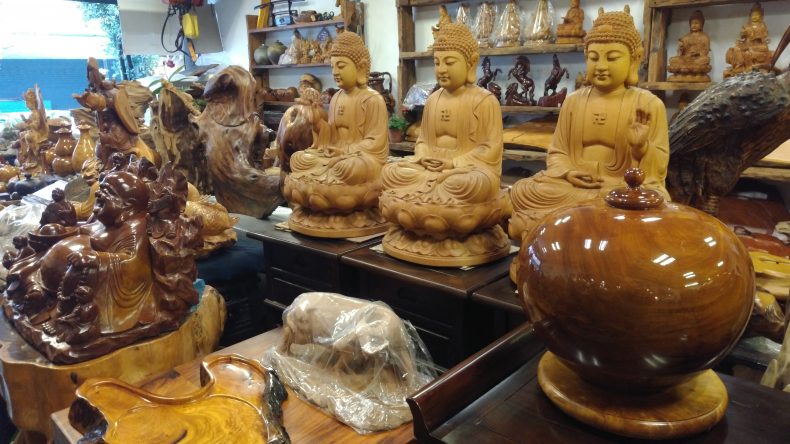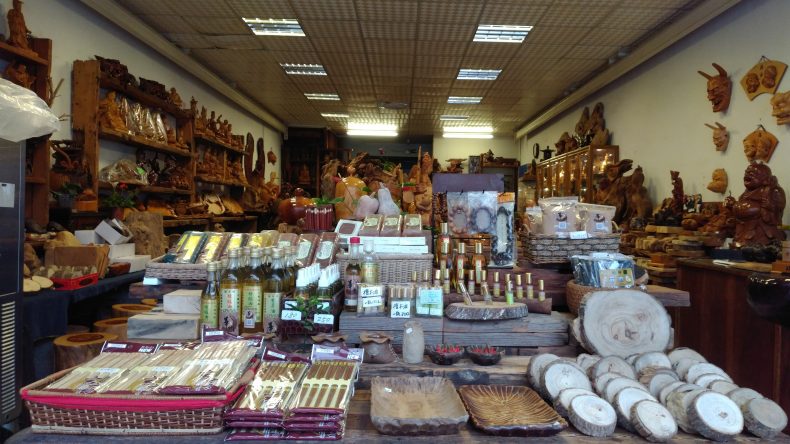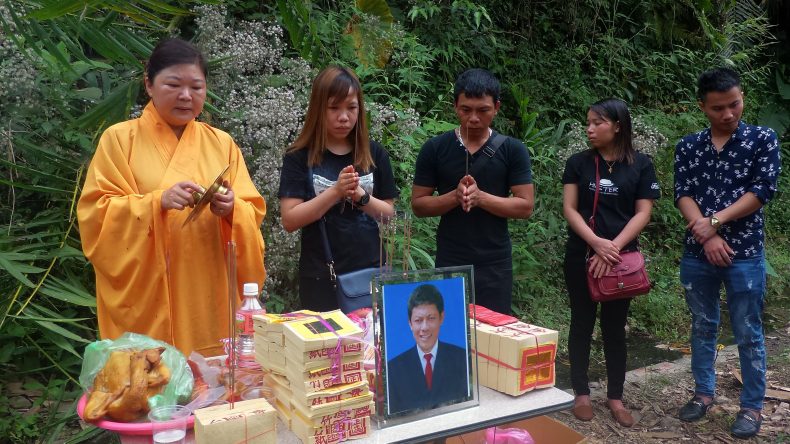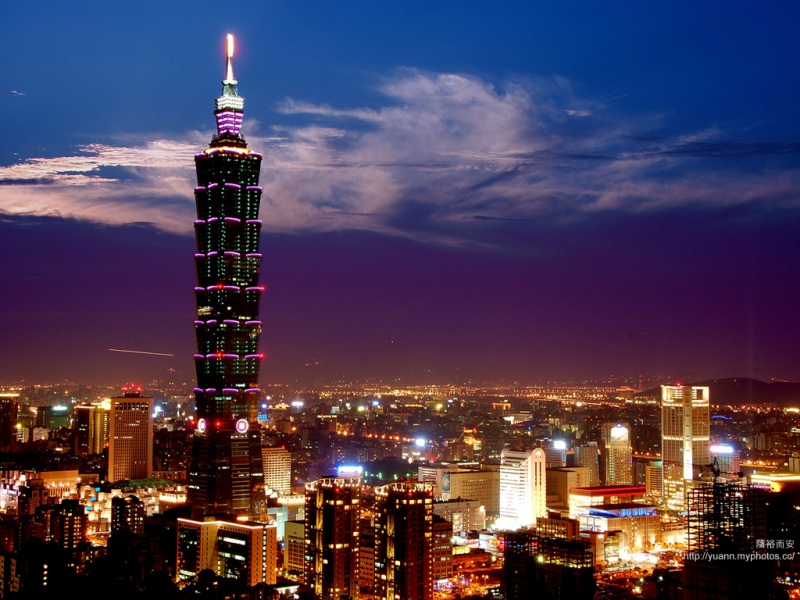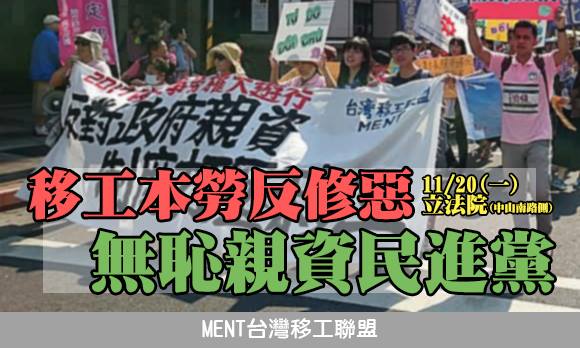It was a cool April day when Hoang Van Doan and four Vietnamese compatriots wandered into Taiwan’s tranquil Alishan forests. Two years earlier, Hoang had left his hometown in Vietnam’s rural Ha Tinh province for the promise of a stable income in the factories of Taiwan. Now 29, he had left the industrial sector behind for promises of fresh air, flexible hours, and quick cash. The new job promised to help him support his wife and 2-year-old son back in Vietnam, but there was a catch: the work was highly illegal. Hoang had found himself embroiled in one of Taiwan’s most dangerous professions: logging the island’s dwindling old-growth forests. And today, he would not make it out of the forest alive.
Hundreds of poachers – colloquially referred to as shan laoshu, or “mountain rats” – are arrested every year in pursuit of the coveted wood of Taiwan’s endangered old-growth trees, such as the Hinoki cypress and the incense cedar. The trees, which are indigenous to Taiwan, are craved by collectors for their sturdy, aromatic wood and their oils, said to have healing qualities in traditional Chinese medicine. Much of the timber that escapes the mountains is sold on to shop owners in bustling wood art markets. There, the contraband gets mixed with legally sourced timber, rendering it difficult for authorities to bust sellers, but easy for wood art connoisseurs to get the precious pieces they crave.
Sixty percent of Taiwan is blanketed by forest, much of it primeval and protected since a 1991 law fully banned natural logging. Its central hinterlands of Nantou, Chiayi, Hsinchu, and Miaoli are mainly known for being home to tea, cool mountain breezes, and some of the world’s oldest and most endangered trees. Police and poachers are locked into a vicious battle to protect them. Stories from the mountains of aggressive police pursuits often take a turn for the sensational. Poachers make daring escapes from windows, and police shoot the tires of cars that blast through checkpoints. Police made 244 arrests in 2016 and 239 in 2017, primarily in Taiwan’s central counties. Forestry officials say that, over the last three years, the culprits have increasingly become Vietnamese migrant workers.
Authorities say that the overall number of poaching arrests has declined in the past decade. “Our monitoring system is a lot stronger now,” said Frank Lin, director general of Taiwan’s Forestry Bureau. Illegal loggers used to chop down entire trees and cut them into small pieces to haul out of the forest, he said. But poaching cabals have shifted to covert guerrilla operations, darting into the forests to quickly extract smaller pieces of wood and oil from tree trunks before they can be detected.
Lin said that one trip, completed by experienced forest navigators in no more than a few hours, can net a single worker 30,000 Taiwanese dollars (US$981) — easily topping Taiwan’s NT$22,000 monthly minimum wage. This makes it an enticing financial proposition for cash-hungry Vietnamese workers, and the moguls who run poaching operations are more than happy to indulge them — regardless of whether the migrants understand the risks.
Migrant workers caught poaching are assured deportation and, since last year, they generally receive sentences of between five and 20 years in Taiwanese prisons. “The Vietnamese workers don’t know Taiwanese law is more serious than Vietnamese law,” said Tsai Tsung-lung, a Chiayi resident and director of the 2016 documentary See You, Lovable Strangers, which follows the lives of runaway Vietnamese workers. “They can’t understand. In these kind of conditions, they become the victims.”
“Vietnamese workers have a bad reputation in Taiwan, so bosses can hide the illegal workers,” Tsai said. “The bosses use the illegal workers as a shield.”
“Migrant workers face a high risk” when they decide to take poaching jobs, said Lin. “But our rangers face a high risk as well.” Logging groups are increasingly armed and dangerous, he said, and Forestry rangers began coordinating crackdowns and arrests with specially trained police in 2017. Migrant workers know that livelihoods are at stake. When poachers are as desperate as Hoang, lives are also on the line.
“Hoang thought the money was worth risking your life for – to be a runaway, a poacher,” said Kevin Chang, a photographer for Taiwan’s Public Television Service (PTS) who has closely followed Hoang’s case. “He and his family didn’t think he would die for it.”
Two years ago, Hoang, the second youngest of four children, followed the path of his eldest brother and joined the approximately 200,000 other Vietnamese living and working in Taiwan. Like most of his compatriots, he initially took a factory job arranged by a third-party brokerage firm in Vietnam. By far the most common facilitator of foreign employment in Taiwan, labor brokers usually charge between US$4,000 and US$7,000 to migrant workers for their services. The balance is expected to be paid off over time, and monthly payments are usually deducted from a worker’s salary.
Reverend Peter Nguyen Van Hung, a human rights activist who heads the Vietnamese Migrant Workers and Brides Office in Taiwan, said that workers who arrive in Taiwan quickly find themselves indebted to brokers and unable to legally transfer to a new employer for the duration of their contract. In its yearly Human Rights Report for Taiwan, the U.S. Department of State noted that some brokers “charged foreign workers exorbitant recruitment fees and used debts incurred from these fees in the source country as tools of coercion to subject the workers to debt bondage.”
“The brokers,” said Hung, “set a trap for the workers — a trap for their own benefit.”
Hoang ran away from his factory job at the beginning of 2018 and went to Chiayi province to take a job as a tea picker. Soon after he started, he suffered a hand injury that required surgery and found himself on the hook for a hospital bill upwards of US$3,000, as he was not covered by national healthcare — jobs in the agriculture sector, while in abundant supply, are illegal for foreign workers.
Taiwan’s farming work is grueling, consisting of laborious work on sun-drenched hillsides from dawn to dusk. It is also prone to slow seasons precipitated by frigid winters and drought-parched springs, which give Taiwanese poachers a window of opportunity to recruit foot soldiers for their forays into the forest. “Wood poaching is more dangerous than agriculture, but the profit is higher,” said Tsai. “They can make money faster.” Hoang had borrowed money for his surgery from his younger sister, Ngan Ha, who came to Taiwan herself in 2017 to work in a factory. He suddenly found himself undocumented, indebted, and desperate to support his wife and young son back in Vietnam
Hung said that identifying and advising Vietnamese workers involved in poaching has proven tricky. While he provides shelter to runaway workers and victims of human trafficking — Hung was recognized by the U.S. as a “hero” for his work in advocating for potentially exploited migrant workers, which influenced the 2009 passage of the Human Trafficking Prevention Act — his efforts to reach out to the poachers who were with Hoang in Alishan led only to frustration. “They keep their secrets,” he said. “I would like to talk to the poachers, but they don’t want to contact me. I would like to go there. But it’s a secret society.”
It is thus unclear whether anybody had warned Hoang of the dangers he faced in Alishan on April 14 when, just before dusk, he and his four compatriots were nabbed by police on a narrow trail aside a steep slope. After the group tried to run, police used a rope gun to ensnare Hoang, but the projectile struck him in the forehead and he began to bleed profusely. He was handcuffed in the front so he could apply pressure to the gaping wound.
Facing certain imprisonment and eventual deportation, Hoang jumped from the slope and disappeared into the forest where police, likely burdened by nightfall, were unable to pursue him. Police say they searched for the injured Hoang, although his friends and family remain skeptical of how vigorous the search really was. He was found five days later not by police, but by one of his brothers. Hoang had died from his wounds, less than a kilometer from where he had fled.
“The police used a low level of force,” said Lin. “They didn’t mean to be violent.” Hoang’s autopsy results are yet to be released, but nobody doubts that his injury was accidental. Instead, his family has been left with the question of whether such an aggressive pursuit was necessary. Sometimes “it’s useless to arrest poachers,” admitted Lin, as the shadowy figures behind the scenes “will find someone else to do the job.” For them, migrant workers are a replaceable commodity. Unaccounted for, and without legal identification, the workers are entirely under their control.
These timber moguls, often gang-affiliated career criminals, are far harder to pin down, and the jury is out on whether they are the government’s primary target. Many sources contacted for this story had their doubts, and prominent politicians and businessmen in Taiwan are frequently accused of being involved in the timber trade. The Forestry Bureau began collaborating with Taiwan’s Criminal Investigation Bureau in 2017, and the partnership has yielded high-profile busts of entrepreneurial poaching operations. Last year, police implicated a Pingtung biotech company in sourcing illegally poached camphor fungus for herbal remedies. Another bust in Taichung led to five arrests when a raid on a poaching cabal yielded the discovery of over NT$100 million (US$3.28 million) in poached goods.
Much of the wood ends up at markets such as the hundreds of shops lining the streets of Sanyi, the Miaoli town famed for its mudiao woodcarving tradition and sought out by busloads of Taiwanese and Chinese tourists for its wood art. Painstakingly intricate yet often large enough to dominate a sitting room, the sculptures are also frequently made from illegal timber.
Artists and shopkeepers openly admit they work with wood provided by poachers. They craft and sell furniture, sculptures of the Buddha, and wooden apples called guimu pingguo said to bring good luck. Despite having a growing fear of being caught purchasing freshly cut wood, they said they were unafraid to openly advertise and sell their wares. “Police don’t always know which shops sell illegal wood, so they focus on poachers,” said Willy Lee, a Sanyi native whose father owned a wood art shop in the tourist town for over 20 years.
Lin said that he is optimistic that the illegal wood art trade will fade “because most collectors are elderly people” — aesthetes carrying on an aging tradition, rapidly fading among Taiwan’s uninterested younger generations. But the wood remains popular among tourists, and customs officials regularly catch smugglers exporting Taiwanese wood to mainland China.
Managing the export of endangered wood is no new role for the Forestry Bureau. The agency inherited a robust for-profit state logging industry from the Japanese in 1945 and accelerated the export of Hinoki cypress to Japan to a peak yield of 2 million cubic meters of fresh harvest in 1972. Environmentalists successfully encouraged the ruling Kuomintang government to shift its public focus to forest preservation, but state exploitation of natural forests continued until 1991, when the government implemented a blanket ban on natural logging.
Under President Tsai Ing-wen, the Forestry Bureau has pursued a policy of reforestation. Lin said the bureau is aggressively planting new cypress, cedar, and camphor trees, which will be ready for harvest in about ten years. Lin hopes this will help the population of the island’s endangered trees recover. The bureau also plans to use these legal, plantation-sourced trees to eventually push poached timber out of the market, as demand remains high. “Hinoki,” he said, “is in people’s hearts.”
Aside from increased collaboration with specialized police forces and Taiwan’s investigation and immigration bureaus, the Forestry Bureau is developing a system to test the DNA of potentially illegal wood, designed to be used in prosecutions of poaching cases. The bureau also hopes to implement reforms intended to reward sellers who operate legally. Deputy Director General Yang Hong-chi said the Forestry Bureau is rolling out a two-pronged licensing system, which will mandate the licensure of plantation-sourced wood while also allowing sellers to authenticate their existing wood, provided they already hold a certificate proving the timber was sourced legally. The licenses will be required for shops that wish to buy driftwood at government auctions, said Yang. Otherwise, the licensing of wood products will remain voluntary.
On the streets of Sanyi, where transactions are conducted with cash and wood is judged on quality rather than legality, not everyone was convinced that the measures would make a difference. “Artists don’t like river wood,” said Lee, as it is considered harder to work with. He also questioned whether shop owners would feel the need to voluntarily license their wood to prove it does not come from poachers. “Buyers will buy wood without licenses,” he said. “They don’t care.”
Li Genzheng, a prominent Green Party figure and the head of environmental NGO Citizens of the Earth Taiwan, said he was dissatisfied with the current government’s licensing proposals. “The government should establish a system that demands an indication of source for all products; marks for place of origin,” he said.
Yang, however, maintains faith that private citizens will fall in line with his agency’s approach. ”I think the people in Taiwan read a lot about forest issues, and are against illegal [practices],” he said. “Taiwan is a developed country. People are wise in making decisions.”
Taiwan’s Hinoki cypress, incense cedar, and camphor trees remain on the endangered list of the International Union for the Conservation of Nature. For poaching magnates, the timeless conifers remain a target of desire. As for Hoang’s family, they were left to wonder how the preservation of Taiwan’s threatened trees led to a conflict that took the life of a loved one.
“Hoang,” said Chang, “thought that, by coming here, he would have a better life.”
Hoang’s family members and friends gather for a ceremony in the clearing where his body was discovered. Photo by Kevin Chang.
Chang was in attendance on a quiet May morning when Hoang’s friends, sister, and one brother — the second oldest of the four, who had found his body — gathered in the same small clearing where Hoang had been discovered. After they paid their respects, Hoang’s body was transported to Taichung where, thousands of kilometers from his family in Ha Tinh, it remains until his autopsy results are released.
His sister has returned to her factory job. His brother, who came to visit his siblings just six days before Hoang leaped from the slope, has returned to Vietnam. The eldest brother, the first to come to Taiwan, did not attend the ceremony. He is a runaway worker himself, and nobody knows, or is willing to divulge, where he is.
Nick Aspinwall is a freelance journalist based in Taipei. Follow him on Twitter: @Nick1Aspinwall
https://thediplomat.com/2018/07/taiwans-silent-forest-wars


